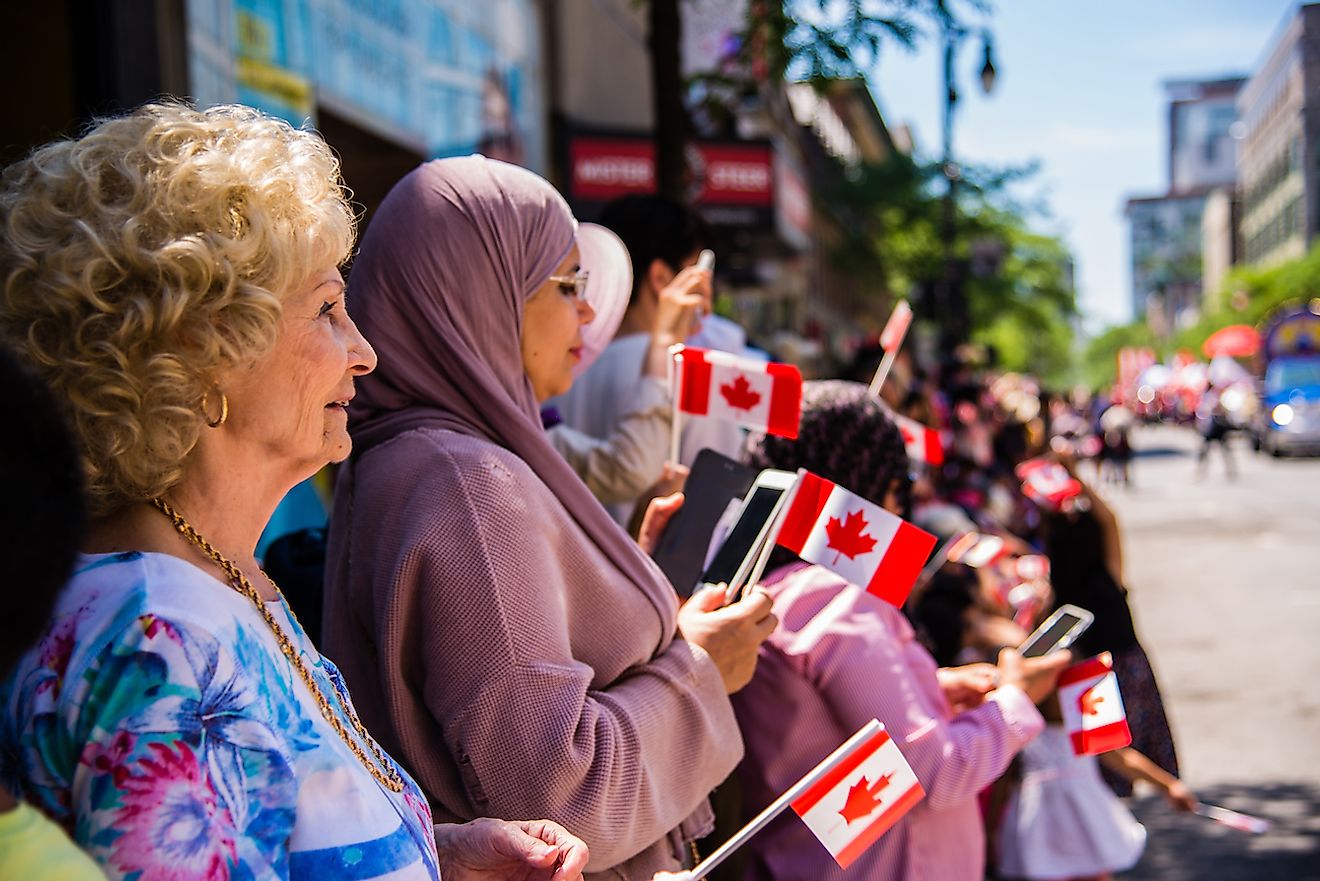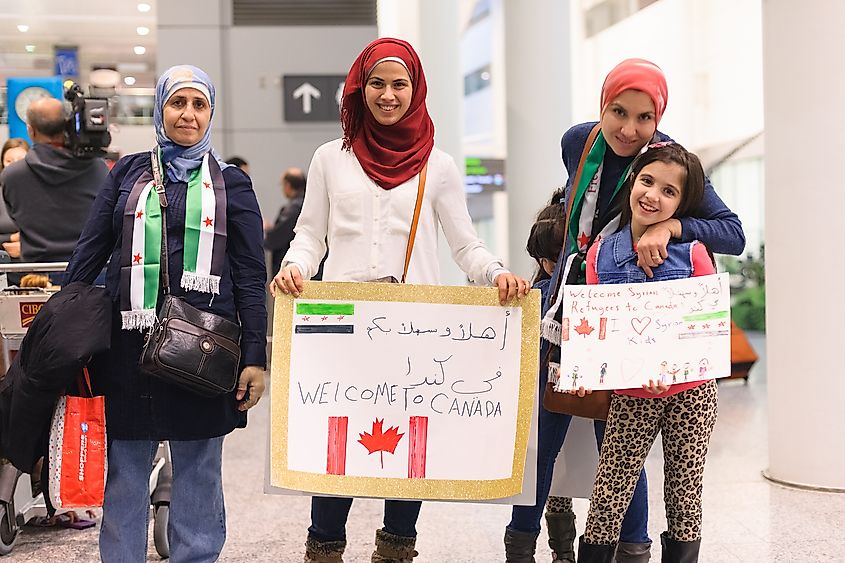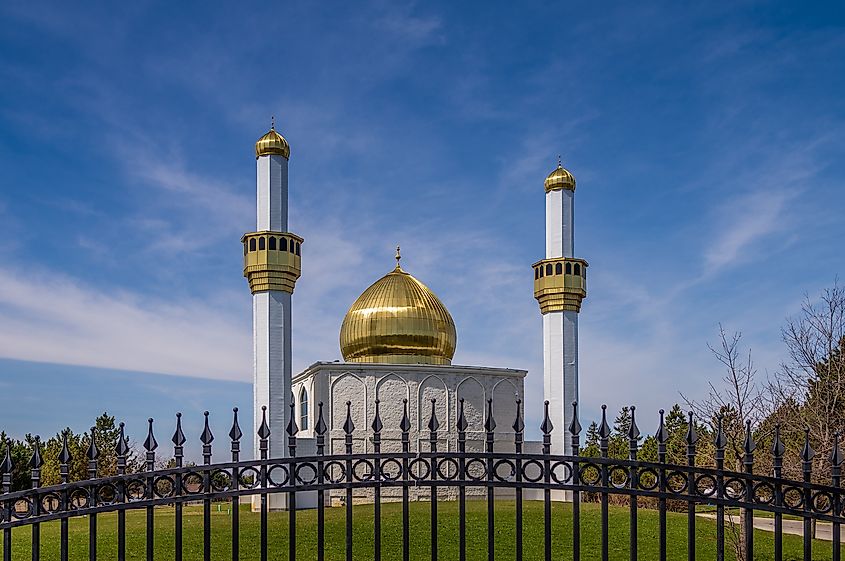5 Facts To Know About Canada's Changing Religious Scene

- According to a 2018 survey by Pew Research, 64% of Canadians believed that religion had less influence on public life that it did 20 years back.
- 39% of Canada’s immigrants adhere to the minority religions of Islam, Hinduism, Buddhism, Sikhism, etc.
- 44% of British Columbia’s population claim to be the “religious nones.”
Canada’s religious landscape is fast changing. As per a report by Pew Research Center, irreligion is gaining popularity in the country while the participation of religious believers in religious services is rapidly dropping. While Christians constitute a vast majority of the country’s population, the number of people who identify as Christians is also decreasing. On the other hand, several minority religious communities in Canada, and especially the Muslim community, are flourishing. Here are some of the most important facts related to this changing religious demographics of Canada:
Religion Now Has Less Influence On Canadian Society
According to a 2018 survey by Pew Research, 64% of Canadians believed that religion had less influence on public life that it did 20 years back. The percentage of Canadians who engage in religious practices like praying daily or attending weekly services has also fallen considerably. Around 36% of Canadians reported that they never pray while nearly 50% claimed they seldom or never attend worship services. However, around 55% of the population agreed that religion still has a somewhat significant role in their life. But young Canadians are less likely to be religious than the older generations.
Canadian Immigrants Are Changing The Country’s Religious Composition

In the past, an overwhelming majority of immigrants to Canada were Christians from European countries. This fact has now vastly changed as nearly 50% of immigrants to the country are now from Asia, Africa, and the Middle East. With 20% of Canada’s population being foreign-born, the religious beliefs of the immigrants also significantly influence the country’s religious scene. 39% of Canada’s immigrants adhere to the minority religions of Islam, Hinduism, Buddhism, Sikhism, etc.
Muslims Are The Fastest-growing Religious Group In Canada

Islam is Canada’s fastest-growing religion. The relatively low median age of the Muslim population coupled with the high fertility rates of Muslim women foster a rise in the number of Muslims in Canada. The population of Muslims exhibited a growth rate of 72.53% which is way higher than that of the growth of the country’s Christian population. While the number of religiously unaffiliated people is also rising fast, this rise of 63.68% is also lower than the growth rate of Canada’s Muslims.
There Are Regional Differences In Canada’s Religious Scene
Western Canada has the highest share of 'religious nones'. 44% of British Columbia’s population claim to be religiously unaffiliated. This trend also prevails in Ontario and the Prairie provinces of Canada. In Atlantic Canada, the percentage share of 'religious nones' have increased over the years but at a slower rate than the regions already mentioned. In Quebec, the population of the unaffiliated has increased slowly as the province has a majority population with strong Catholic background.
Similarly, the growth of minority religions in the country has also been non-uniform across the country. In Ontario, the religious minorities have grown at the fastest pace from 5% to 15% between 1981 and 2011. In British Columbia, the religious minorities have also exhibited significant growth. The Canadian Prairie provinces and Atlantic Canada has, however, exhibited a smaller change in their minority religious communities.
Canada Continues To Exhibit A High Level Of Religious Tolerance
Canada is known for offering a high degree of religious freedom to its residents. Although there has been a rise in controversies associated with the rapid growth of minorities in the country, religious harmony still prevails. The Canadian government puts little restrictions on religious groups. The authorities usually do not interfere with an individual's or community's religious practices until it becomes a threat to individual or national security. There have been several instances where Canadian courts have allowed religious minorities to carry on with their traditional practices despite complaints from members of the general public. Canada also often make changes in rules to accommodate different religious groups within its national framework. For example, the Royal Canadian Mounted Police in the country allows its Sikh men to wear the traditional turban instead of the official hat.











